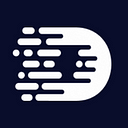What is creator economy?

Creator economy is the economy, where the main capitalized value is new ideas. It is an economy based on innovations, novelties and creative products. Basically, it consists of people, who have a hobby that becomes monetizable.
An innovative product does not have to be a new technology: it may be something familiar, but viewed from a new angle, in a new context. In other words, something that will surprise the imagination of future consumers.
Let’s take a look at the history of the creator economy since the very beginning.

Web1 | The Information Economy → Content consumers (1985)
Web1 refers to the first version of the web: read-only. Also called ‘The Information Economy,’ Web1 examples are static web and personal sites, where the users’ role was mainly limited to reading the information provided by a few content producers, with no option for them to circle back to those creators.
Web2 | Creators = Bloggers → Brand representatives (2004)
As more people started gravitating to the internet, Web2 saw the rise of influential people who started blogging, gradually amassing significant fame and online audiences on platforms .
Thereafter, Web2 creators started monetizing their audience primarily via advertising, becoming the channels for other brands — allowing creators to earn revenue through affiliate advertising and sponsorship agreements.
Web3 | No more platform monopolies → Creator Ownership
The key elements of creative activity are human imagination and ways of self-expression. The combination of these two elements gives birth to the most valuable and inspiring works of art. This process pushes humanity forward, enriching it with intangible values. However, artists should not be content with meager earnings at all, even if the market does not reward them with fair compensation for their work.
Piracy has flourished in the art market for centuries. But now it is getting a worthy rebuff from the creators — a community of people who produce various kinds of digital content. Content monetization takes place through various channels, where you can get access to creative — unique — media for a fee.
Blockchain solutions have also become a powerful weapon in the fight against piracy.
The essential advantages of NFT are directly in their code. Among the advantages is the immutability and transparency of ownership. Thus, authors can be sure that the rights to own and copy their content are reliably protected. The owners can also rest easy knowing that they possess a truly unique work of art.
